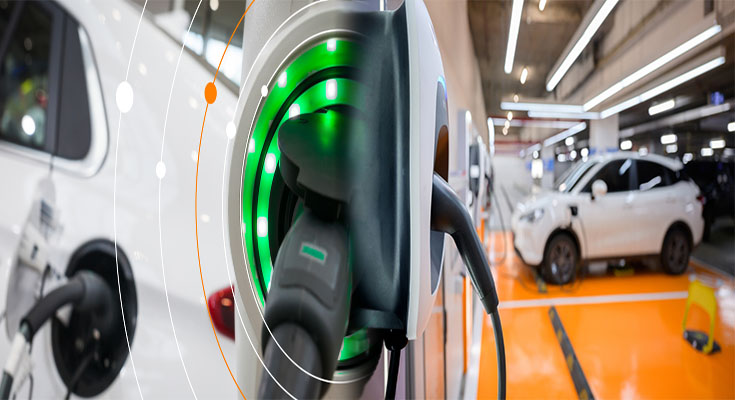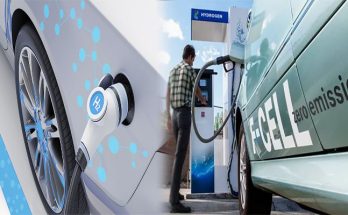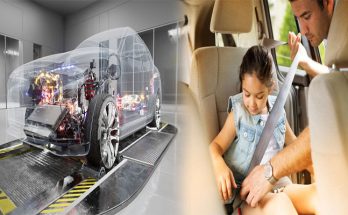The progression of electric vehicle (EV) technology has been heavily influenced by advancements in fast-charging capabilities. The ability to rapidly recharge electric vehicle batteries has significant implications for the practicality, convenience, and widespread adoption of EVs. In this article, we will explore the impact of fast-charging innovations on electric vehicle batteries, analyzing the benefits and challenges associated with this transformative technology.
Understanding Fast-Charging Innovations
Fast-charging innovations in the electric vehicle sector encompass a range of technological developments aimed at reducing charging times and improving the overall efficiency of charging infrastructure. These innovations leverage advancements in battery chemistry, charging protocols, thermal management systems, and infrastructure deployment to achieve accelerated charging speeds while maintaining the integrity and longevity of electric vehicle batteries.
Impact of Fast-Charging on Electric Vehicle Batteries
- Enhanced Convenience and Adoption: Fast-charging innovations play a pivotal role in enhancing the convenience and practicality of electric vehicles. Rapid charging capabilities reduce the time required to replenish an electric vehicle’s battery, aligning more closely with the refueling experience of traditional gasoline vehicles. This increased convenience is critical for fostering greater acceptance and adoption of electric vehicles, particularly among consumers who prioritize convenience and flexibility in their transportation choices.
- Extended Battery Lifespan: While fast-charging introduces higher currents and temperatures during the charging process, innovative thermal management systems and battery designs mitigate potential adverse effects on battery longevity. Proper management of the charging process safeguards the integrity of electric vehicle batteries, allowing for rapid charging without compromising the long-term lifespan of the battery pack. This balance between fast-charging speed and battery durability is instrumental in ensuring the sustained performance and reliability of electric vehicles.
- Driving Range Confidence: Fast-charging innovations contribute to reducing range anxiety, a common concern among potential electric vehicle owners. The ability to access high-power charging stations that can replenish a significant portion of the battery capacity in a short amount of time alleviates concerns about running out of charge during longer trips. This increased driving range confidence is instrumental in promoting the widespread adoption of electric vehicles for both daily commuting and long-distance travel.
- Technological Advancements and Standardization: Fast-charging innovations have spurred significant advancements in charging infrastructure and charging protocols. High-power charging stations, such as those utilizing DC fast-charging technology, are becoming increasingly prevalent, enabling rapid charging for a growing number of electric vehicle models. Additionally, standardization efforts in charging connectors and communication protocols enhance interoperability and accessibility across different charging networks, further bolstering the appeal and usability of electric vehicles.
- Challenges and Considerations: While fast-charging innovations offer remarkable benefits, they also present challenges related to battery heat generation, charging infrastructure availability, and potentially higher initial costs. Managing battery temperature during fast-charging is critical to preserving battery health, and ongoing research and development focus on optimizing thermal management systems to address this concern. Furthermore, the continued expansion of high-power charging infrastructure is essential to fully realize the potential of fast-charging capabilities and ensure widespread accessibility for electric vehicle owners.
Future Implications
The impact of fast-charging innovations on electric vehicle batteries is poised to reshape the landscape of sustainable transportation. As technology continues to evolve, the symbiotic relationship between rapid charging advancements and the performance, reliability, and convenience of electric vehicles will continue to drive the transition towards an electrified transportation ecosystem.
The impact of fast-charging innovations on electric vehicle batteries heralds a new era of practicality and acceptance for electric mobility. By enhancing convenience, preserving battery longevity, instilling driving range confidence, advancing charging infrastructure, and addressing associated challenges, fast-charging innovations are pivotal in accelerating the transition to electric vehicles as a mainstream transportation solution. This transformation underscores the pivotal role that rapid charging capabilities play in shaping the future of sustainable transportation.





